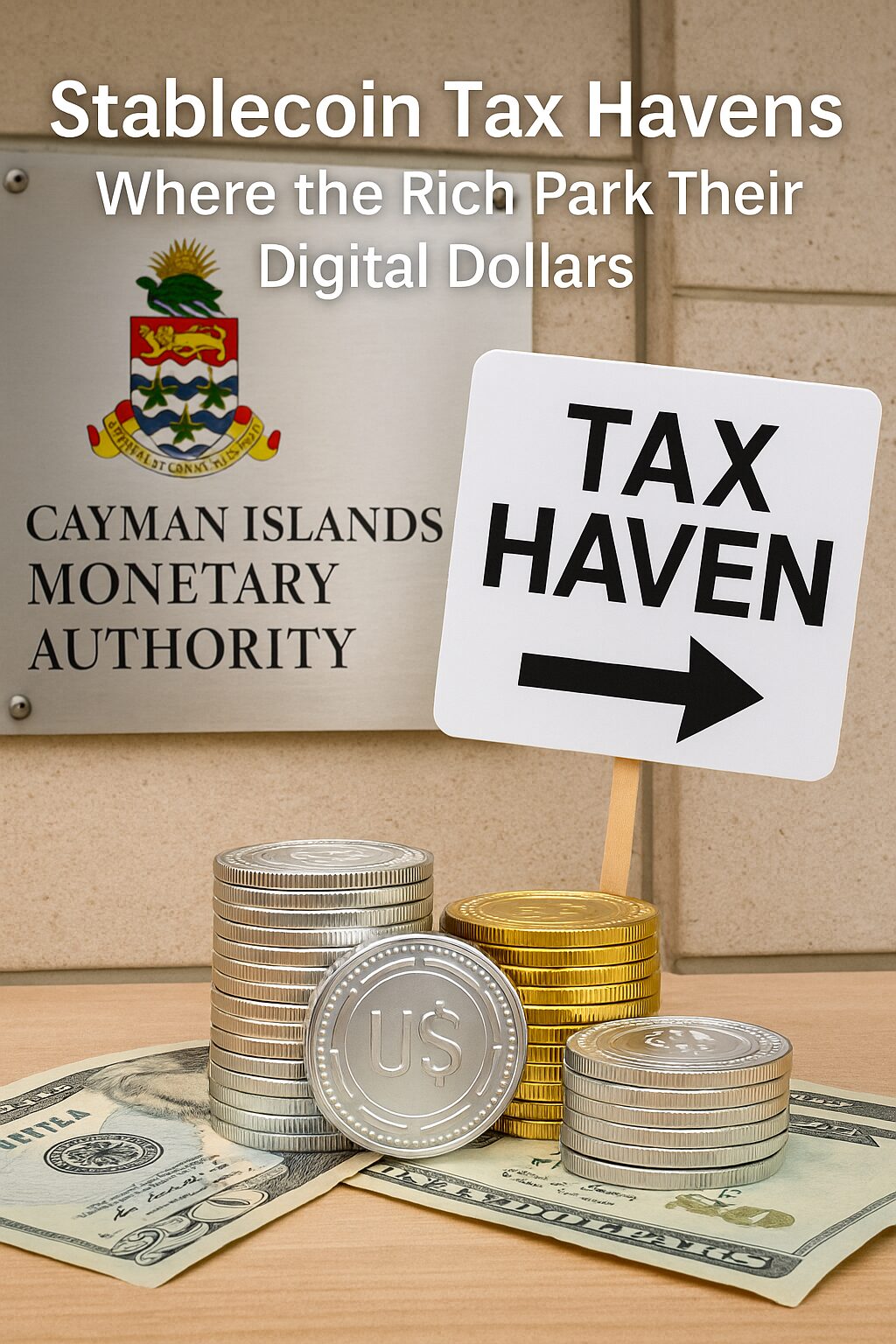📌 Opening Preview
Stablecoin Tax Havens – Where the Rich Park Their Digital Dollars
→ In this post, we explore the jurisdictions where stablecoin investors can legally reduce their tax burdens — and how the ultra-rich choose where to park their digital assets.
While the average crypto user may be content with storing stablecoins in popular exchanges or digital wallets, the ultra-rich play a different game. Their focus isn’t just on returns — it’s on strategic asset placement, legal tax minimization, and financial sovereignty. Enter the world of Stablecoin Tax Havens: jurisdictions that offer both crypto-friendly regulation and favorable tax environments.
In this in-depth guide, we’ll uncover the most attractive stablecoin havens across the globe, explore what makes them legally effective, and break down how billionaires use these setups to secure and grow their digital fortunes.
1. What Makes a Jurisdiction a “Tax Haven” for Stablecoins?
A tax haven isn’t just a low-tax or no-tax country. For stablecoin investors, it must meet three critical criteria:
- Crypto Recognition: The jurisdiction must legally recognize digital assets, including stablecoins.
- Tax Advantage: Either zero capital gains tax or clear exemptions on crypto-related gains.
- Operational Infrastructure: Availability of custodial services, legal firms, banking support, and regulatory clarity.
2. Top Stablecoin Tax Havens in the World
🇸🇬 Singapore
- No capital gains tax
- Strong banking infrastructure
- Recognized as a fintech and crypto innovation hub
- MAS (Monetary Authority of Singapore) offers clear digital asset guidance
🇨🇭 Switzerland (Zug – Crypto Valley)
- Tax-friendly treatment of crypto
- World-renowned for asset protection
- Private banking and wealth structuring services available
- Strong legal frameworks for digital entities
🇦🇪 UAE (Dubai & Abu Dhabi)
- No personal income tax or capital gains tax
- Dubai’s VARA and Abu Dhabi’s ADGM support crypto operations
- Popular among crypto entrepreneurs and DeFi startups
🇵🇦 Panama
- Zero capital gains tax
- Crypto-friendly regulation with decentralized ethos
- Easy company formation and banking services
🇵🇹 Portugal (Madeira region)
- Historically zero tax on crypto gains (subject to policy shifts)
- Ideal for early crypto adopters and digital nomads
- Clear distinction between personal and professional trading
🇸🇻 El Salvador
- First country to adopt Bitcoin as legal tender
- No capital gains tax on foreign crypto income
- Still developing infrastructure for high-net-worth crypto investors
3. How the Ultra-Rich Use These Havens
Offshore Entities
Many investors create foreign LLCs or IBCs to hold their stablecoin portfolios. These are often registered in Belize, BVI, or Panama.
Personal Residency or Citizenship
Some opt for residency or dual citizenship in tax havens to personally benefit from favorable laws.
Trust Structures
Asset protection trusts in places like the Cook Islands or Nevis are used to separate personal ownership while retaining control.
Banking and Custody
Ultra-rich stablecoin holders often use private banks in Switzerland or Singapore that support digital asset custody.
4. Legal Considerations and Risks
- Substance Requirements: Some jurisdictions now require real operations or presence to grant tax benefits.
- Anti-Avoidance Rules: Tax authorities may challenge offshore structures without clear business rationale.
- Regulatory Shifts: A tax haven today may change its policies tomorrow. Always monitor legislative trends.
- Global Transparency Initiatives: CRS and FATCA-like frameworks may increase disclosure burdens.
5. Are These Strategies Legal?
Yes — when structured properly with local legal advice and international compliance. The key is not to hide assets but to optimize structures transparently within the law.
6. Final Thoughts
Stablecoins offer unmatched liquidity and global transferability — but without proper planning, gains can be heavily taxed or even legally challenged. By understanding where and how to legally park your stablecoins, you take a page from the playbook of the world’s wealthiest crypto investors.
In a world where financial borders are fading and regulations are tightening, jurisdictional strategy is no longer optional — it’s essential.
